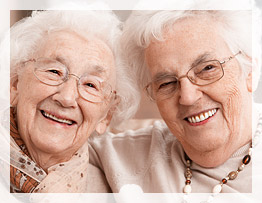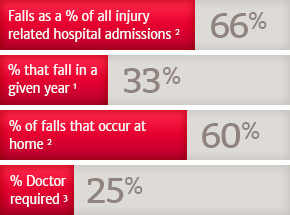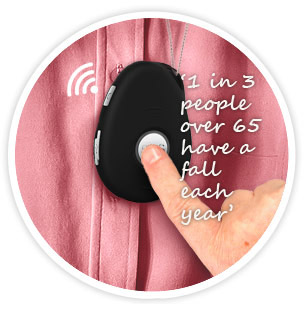Who needs one? The case for medical alarms.
Highly recommended for seniors
A Personal Medical Alarm is highly recommended for most seniors and absolutely essential for people who suffer from a list of many, common medical conditions and disabilities.

People with these conditions are at risk from falls or the sudden onset of acute symptoms or deterioration in their existing condition.
Returning home from hospital
It is also recommended in many circumstances by nurses and carers for those senior people recently discharged from hospital.
Who is at risk of a fall at home?
When it comes to falls the statistics are perhaps surprising. Most people don’t know that 1 in 3 people over 65 years have a substantial fall in any given year.1 Watch the Video.
Falls are the leading cause of injury-related hospital admissions in people aged over 65.2
60% of falls occur at home. They usually occur when getting out of a chair, bed or when going to the toilet.2
The estimated average total hospital stay due to an injurious fall by an older person is 15 days.5
Frequent falling
Those who fall are two to three times more likely to fall again4. The risk of falls increases proportionally with age. At 80 years, over half of seniors fall annually.
Why do seniors fall?
Older people are at increased risk because normal ageing often involves worsening balance, eyesight, muscle tone & slower reaction times.
Unable to get up after falling
For the elderly who fall and are unable to get up on their own, the period of time spent immobile often affects their health outcome. Muscle cell breakdown starts to occur within 30-60 minutes of compression due to falling. Dehydration, pressure sores, hypothermia, and pneumonia are other complications that may result.
Getting help after a fall
Getting help after an immobilizing fall improves the chance of survival by 80% and increases the likelihood of a return to independent living.
Reference
‘The Patient Who Falls’: American Medical Association, Vol 303, no.3, 2010.
‘Falls Prevention for Older People’, Better Health Channel.
‘Interventions for preventing falls in older people living in the community ’(Review)’, Gillespie LD, Robertson MC, Gillespie WJ, Lamb SE, Gates S, Cumming RG, Rowe BH, The Cochrane Collaboration, Issue 4, 2009.
‘A Guide to Preventing Falls for Older People’, Commonwealth of Australia, 2007.
‘Hospitalisations Due to Falls in Older People 2005-2006’, Bradley C and Harrison JE (2007) 2003-04. 2003-04. Injury research and statistics series number 32, (AIHW cat. no. INJCAT 96) Adelaide: AIHW.
Disclaimer
This website contains general information about medical and health matters. The information is not advice, and should not be treated as such. You must not rely on the information on this website as an alternative to medical advice from your doctor or other health services provider.
If you have any specific questions about any medical or health matters you should consult your doctor or other professional health services provider or personal carer. You should never delay seeking medical advice, disregard medical advice, or commence or discontinue any medical treatment because of information on this website.
Please read the full Legal Disclaimer here…




